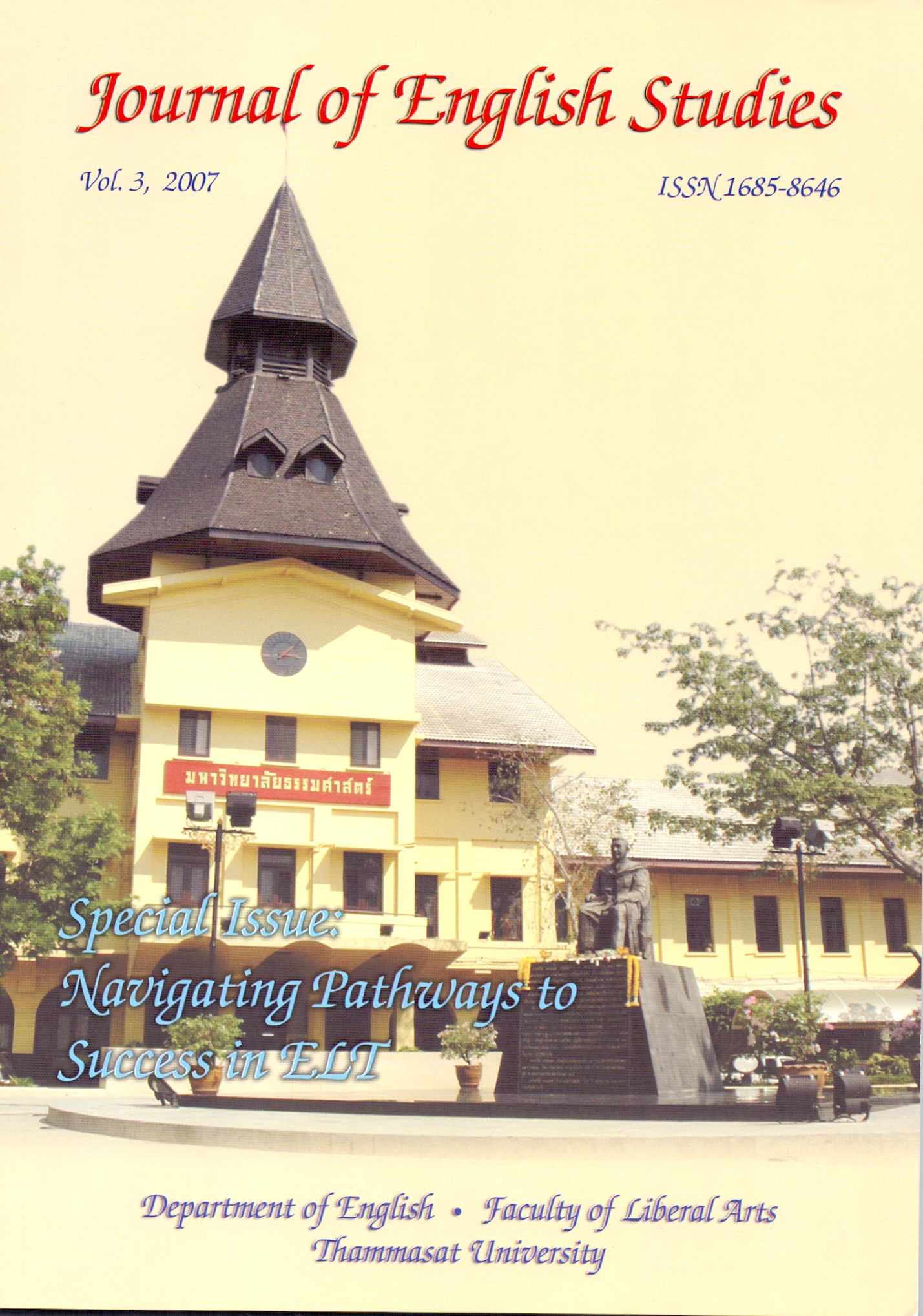Navigating Pathways to Success in ELT
Main Article Content
Abstract
This paper commences with ELT in Thailand and the central role for the English language. A brief account on the development of English curriculum is presented as one of several attempts from all parties involved to improve ELT. However, Thai learners' English profiviency, as measured by different benchmarks, was congruently unsatisfactory. Possible factors hindering positive outcomes for ELT are described. Given the focus of this paper on enhancing the English proficiency of thai teachers, barriers that teachers encounter and bridges that are meant to better prepare individual language teachers are discussed. First, the paper emphasizes that teacher training should focus on not only teaching methods but also linguistic knowledge. Diverse areas of linguistics are exemplified to illustrate what a teacher should know to be "proficient" in English. Second, for several practical reasons, local training should be the plausible goal of the teaching staff. In addition, teachers should also perform the role of researchers. In so doing< the classroom situation can be described as both leatner-autonomous because learners'performances determine what needs to be taught and teacher-autonomous bexause, with their linguistic knowledge, teachers can be on their own. Finally, in a hopeful light, the aspirations for every teacher's success can be forged, and we, side by side, will remain on pathways leading to academic success in ELT in Thailand.
Article Details
How to Cite
Kanoksilapatham, B. (2014). Navigating Pathways to Success in ELT. Journal of Studies in the English Language, 3. retrieved from https://so04.tci-thaijo.org/index.php/jsel/article/view/23286
Issue
Section
Articles
Authors who publish with this journal agree to the following terms: Authors retain copyright and grant the journal right of first publication with the work simultaneously licensed under a Creative Commons Attribution License that allows others to share the work with an acknowledgement of the work's authorship and initial publication in this journal. Authors are able to enter into separate, additional contractual arrangements for the non-exclusive distribution of the journal's published version of the work (e.g., post it to an institutional repository or publish it in a book), with an acknowledgement of its initial publication in this journal. Authors are permitted and encouraged to post their work online (e.g., in institutional repositories or on their website) prior to and during the submission process, as it can lead to productive exchanges, as well as earlier and greater citation of published work (See The Effect of Open Access).


